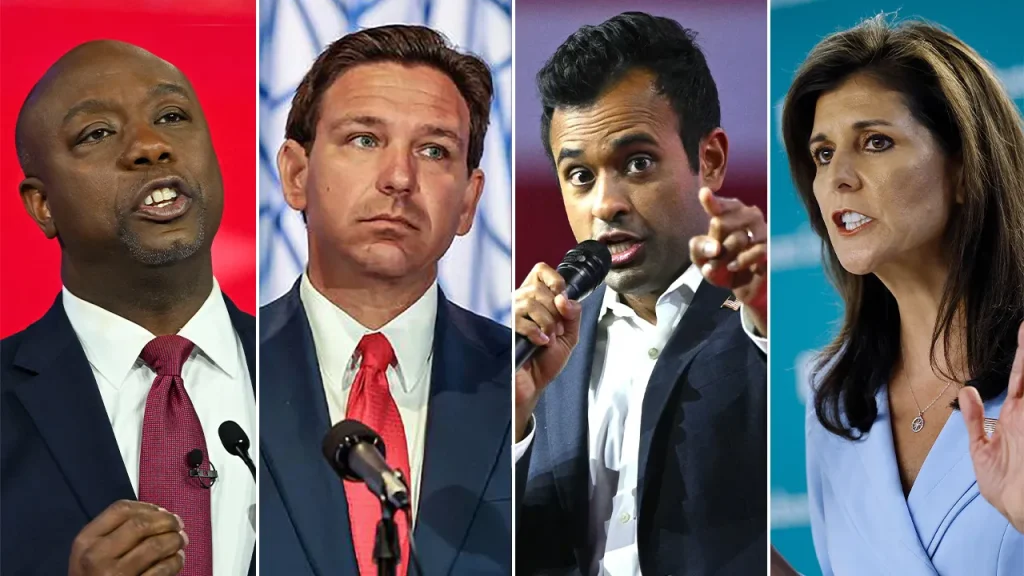Former President Donald Trump’s Republican primary opponents had a range of reactions to his guilty verdict in New York City, with some blasting Democrats for pursuing the charges while others remained silent. South Carolina Sen. Tim Scott called the verdict a “hoax” and a “sham,” criticizing the justice system and Democratic efforts to silence Americans. North Dakota Gov. Doug Burgum and entrepreneur Vivek Ramaswamy also expressed disbelief and concern over the trial’s outcome, questioning the impartiality of the judge and prosecutors. Former Vice President Mike Pence called the conviction an “outrage and disservice to the nation,” warning that political prosecution undermines confidence in the justice system.
Florida Gov. Ron DeSantis criticized the supposedly political nature of the trial, pointing to the leftist prosecutor, partisan judge, and liberal jury involved. He argued that the case would not have been brought if the defendant were not Donald Trump, questioning the fairness and legitimacy of the legal process. Conservative commentator Larry Elder and businessman Perry Johnson also condemned the verdict as a political maneuver by the Biden Administration to silence and eliminate political rivals. Former Arkansas Gov. Asa Hutchinson, a Trump critic, called for the verdict to be respected despite his personal views on the former president.
While some of Trump’s Republican primary opponents spoke out against the guilty verdict, others, including former U.N. Ambassador Nikki Haley, former New Jersey Gov. Chris Christie, Miami Mayor Francis Suarez, and former Texas Rep. Will Hurd, remained silent on the matter. Their lack of public statements may reflect uncertainty or caution in expressing their views on the trial’s outcome. The reactions among Trump’s GOP rivals highlight the divisions within the Republican Party and the varying perspectives on the legal and political implications of the case.
The guilty verdict in Trump’s trial has sparked a debate within the Republican Party over the fairness of the legal process and the motivations behind the charges. While some Republicans believe the trial was politically motivated and unfair, others argue that the verdict should be respected and the rule of law upheld. The differing reactions among Trump’s Republican primary opponents reflect broader tensions within the party over how to respond to the former president’s legal troubles and his continued influence within the party.
Regardless of their personal views on Trump and the trial, it is clear that the verdict has deepened divisions within the Republican Party and raised questions about the independence and fairness of the justice system. The outcome of the trial is likely to have lasting implications for the party’s future direction and its relationship with Trump and his supporters. As the former president vows to appeal the verdict and continue fighting, the Republican Party will face ongoing challenges in navigating the fallout from the trial and determining its response to Trump’s legal troubles. The coming months and years will reveal how the party grapples with these issues and whether it can find a way to unite behind a common vision moving forward.


